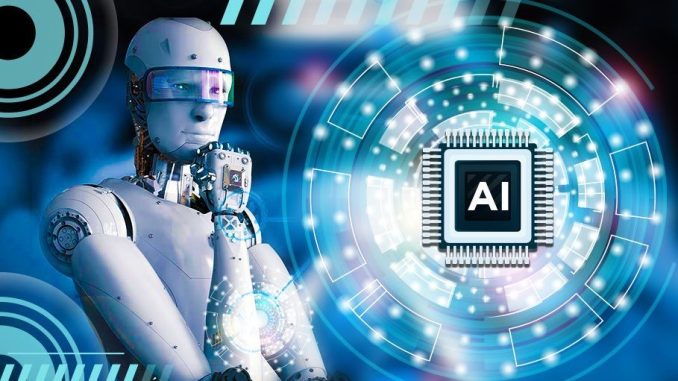
🔍 Introduction: A New Era of Intelligent Business
The year 2025 marks a pivotal turning point in the evolution of business. No longer a novelty, artificial intelligence (AI) has become a core driver of business innovation, agility, and long-term competitiveness. From automating processes to predicting customer behavior, AI is now an indispensable component of the modern enterprise.
With digital transformation accelerating across industries, organizations that leverage AI-powered business strategies are gaining a significant edge. This article explores how AI is revolutionizing the way we work, reshape business models, and redefine success in today’s fast-paced economy.
🤖 1. AI Is No Longer Optional—It’s Operational
In 2025, AI is not just a tool — it’s the backbone of digital enterprises. Companies worldwide are deploying AI across core operations:
-
Customer Service: AI-powered chatbots and virtual assistants handle millions of inquiries daily, improving resolution time and customer satisfaction.
-
Human Resources: Intelligent algorithms screen candidates, conduct sentiment analysis during interviews, and even assist with employee wellness.
-
Marketing: Predictive analytics tools optimize campaigns, personalize user experiences, and boost conversion rates by up to 40%.
According to a McKinsey & Company report, businesses that adopt AI across multiple functions see a 20–25% boost in productivity and 30% cost reductions within the first year.
📊 2. Predictive Power: From Data to Decisions
AI’s ability to analyze massive datasets in real time allows businesses to forecast trends, optimize inventory, and mitigate risks. In retail, AI predicts purchasing behavior down to the individual level. In finance, it anticipates fraud before it happens.
Example: Amazon uses machine learning algorithms to predict what products users will buy before they even search for them — a practice called anticipatory shipping.
🛠️ 3. Intelligent Automation: Saving Time, Scaling Fast
AI-driven automation is eliminating repetitive tasks, freeing human workers to focus on creativity and strategy. Tools like RPA (Robotic Process Automation), combined with AI, automate everything from invoice processing to legal contract review.
Case Study:
A global logistics company implemented AI bots to optimize delivery routes and reduced shipping costs by 18% in Q1 2025 alone.
“AI doesn’t replace jobs; it redefines them.” — Gartner
💼 4. The AI-Powered Workforce: Skills of the Future
The integration of AI is changing the definition of employability. In 2025, businesses are looking for a hybrid workforce — humans who can work alongside machines.
Top In-Demand Skills:
-
Data literacy
-
Prompt engineering
-
AI ethics
-
Digital collaboration
-
Adaptive thinking
Upskilling programs are on the rise, with platforms like Coursera and LinkedIn Learning offering AI-focused certificates tailored for business professionals.
🌍 5. Industry Use Cases: From Healthcare to Manufacturing
Healthcare: AI detects early signs of diseases through image recognition and accelerates drug discovery.
Manufacturing: Smart factories use AI to monitor production lines, detect anomalies, and maintain quality in real time.
Finance: Robo-advisors, fraud detection, and algorithmic trading are all powered by machine learning.
Insurance: AI assesses claims, predicts risk, and enhances customer onboarding.
Fact: Over 70% of global enterprises now use at least one AI tool in daily operations.
🔐 6. Trust, Transparency & Ethics in AI
With great power comes great responsibility. Ethical concerns around data privacy, bias in AI models, and algorithm transparency are growing.
Organizations are now required to:
-
Ensure AI explainability
-
Conduct regular AI audits
-
Comply with global AI regulations like the EU’s AI Act
Building trustworthy AI is now a competitive differentiator.
💡 7. How Businesses Can Get Started With AI in 2025
Not every business needs a full-scale AI department. Getting started can be as simple as:
-
Identifying areas of inefficiency
-
Starting with off-the-shelf AI solutions (like Salesforce Einstein or Microsoft Copilot)
-
Training staff in AI basics
-
Partnering with AI consultancies for strategic implementation
🚀 Conclusion: Ready for the AI-First Future?
AI is not coming — it’s already here, reshaping how businesses operate, compete, and grow. Companies that adapt quickly and ethically to this transformation will be the leaders of tomorrow.
The future of work isn’t just about working with AI — it’s about thriving because of it.